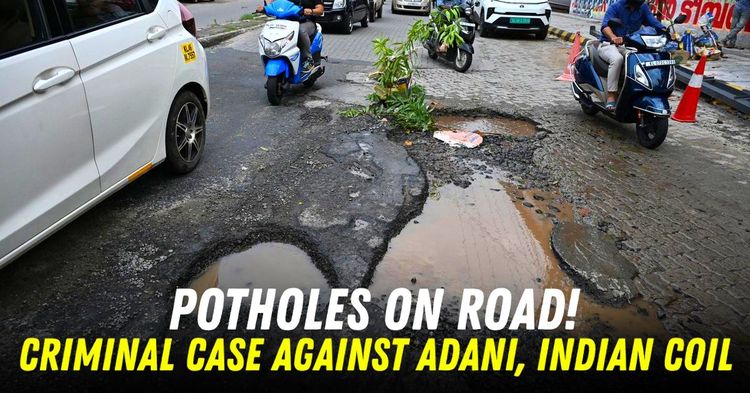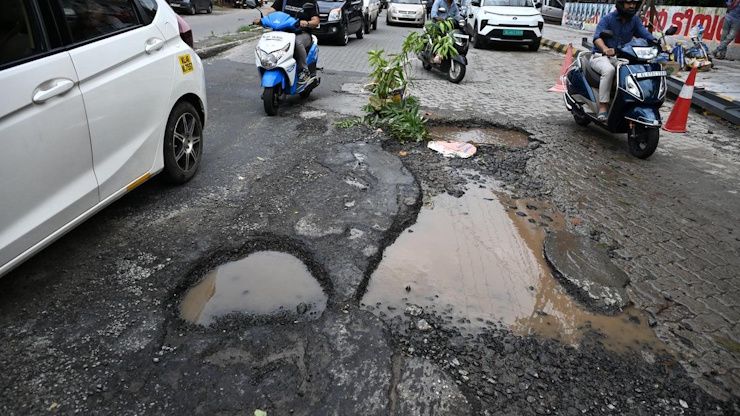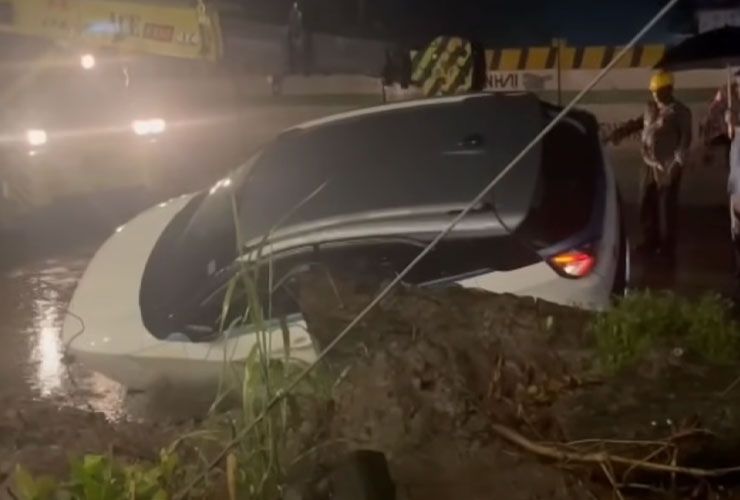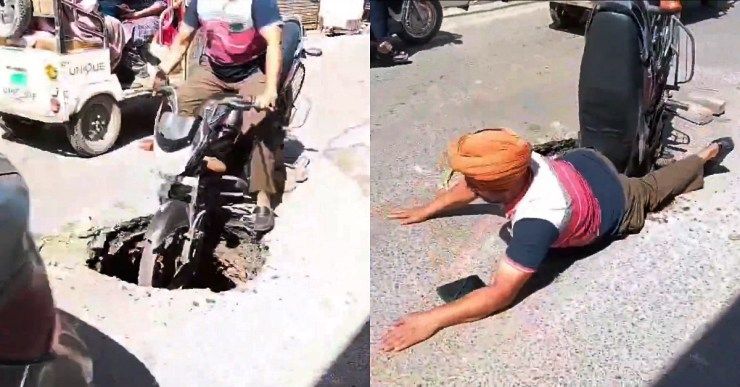Criminal Case filed Against Adani, Indian Coil Over Bad Roads In Kochi


Kochi’s pothole-strewn roads have long been a source of frustration for daily commuters. Now, for the first time, they’ve led to a criminal case. In a move that could set a significant precedent, Kochi Police have registered a case against Adani Group and Indian Coil Company for the appalling condition of roads in the city. The case, which stems from a complaint filed by a local advocate, signals a rare instance where private contractors and project managers are being held directly accountable for civic negligence.

The issue came to a head when a lawyer from the Kerala High Court Bar filed a formal complaint with the Ernakulam North Police Station. The grievance centred around the severe deterioration of roads in areas under the Cochin Port Authority and the Container Road stretch, which have reportedly become hazardous for motorists. Based on this complaint, the police have booked Indian Coil Company and Adani Group under sections of the Indian Penal Code that deal with public safety and negligence.
What makes this development especially noteworthy is the direct targeting of corporate entities that were contracted to build or maintain public infrastructure. Typically, civic bodies or contractors working under government authorities bear the brunt of public anger. In this case, the police have gone a step further by invoking criminal liability against those perceived to be responsible for the state of the roads.

Indian Coil Company had been engaged in roadwork projects on behalf of the Cochin Port Authority, while Adani Group was overseeing the operations and development of port-related infrastructure, including access roads leading to and from the port. With growing complaints from residents and motorists about the dangerous driving conditions, these entities have now come under direct scrutiny.
The police have not only registered a case but have also indicated that they will collect evidence on site and may summon the responsible project managers for questioning. While Adani has not issued a public response yet, legal experts suggest the case could raise fresh debates over accountability in public-private partnerships.

For those navigating Kochi’s port roads, this case validates years of complaints. Motorists have routinely flagged potholes, uneven patches, and open drains, particularly along stretches used by heavy container trucks. In monsoon conditions, these defects become even more treacherous. Two-wheeler riders are especially vulnerable, with several minor accidents reportedly going unrecorded due to their frequency and the normalisation of poor road quality.
Residents of areas such as Kalamassery and Vallarpadam have voiced anger over repeated delays in road maintenance despite contracts being awarded and work orders being cleared. Critics argue that while the port has seen significant commercial development, the supporting infrastructure has not kept pace. Many feel that the focus on industrial growth has come at the cost of basic public safety.
This case may mark a turning point in how civic accountability is enforced in infrastructure projects. Traditionally, the blame for bad roads has rested on local bodies or, at best, mid-level contractors. With this criminal case, the focus shifts to top-level project stakeholders, especially in the context of large-scale privatisation and corporatisation of infrastructure.
While this is not the first time Adani’s infrastructure ventures have come under public scrutiny, being named in a police FIR related to road safety is a new development. For Indian Coil Company too, the charges could pose reputational risks beyond Kerala.
Legal observers suggest that if the case progresses, it could compel corporates to revisit their risk management strategies for public-facing projects. More importantly, it could also embolden citizens in other cities to initiate similar legal action when basic infrastructure remains neglected.
For Kochi residents, the case is a flicker of hope in what has been a long and frustrating battle with bad roads. For corporations engaged in public works, it’s a wake-up call to treat infrastructure quality as a legal obligation, not just a contractual deliverable.
Whether this case leads to real penalties or fizzles out under legal pressure remains to be seen. But for now, it has forced a serious conversation about who is truly responsible when poor infrastructure endangers public safety. And that, in itself, is a road less travelled.